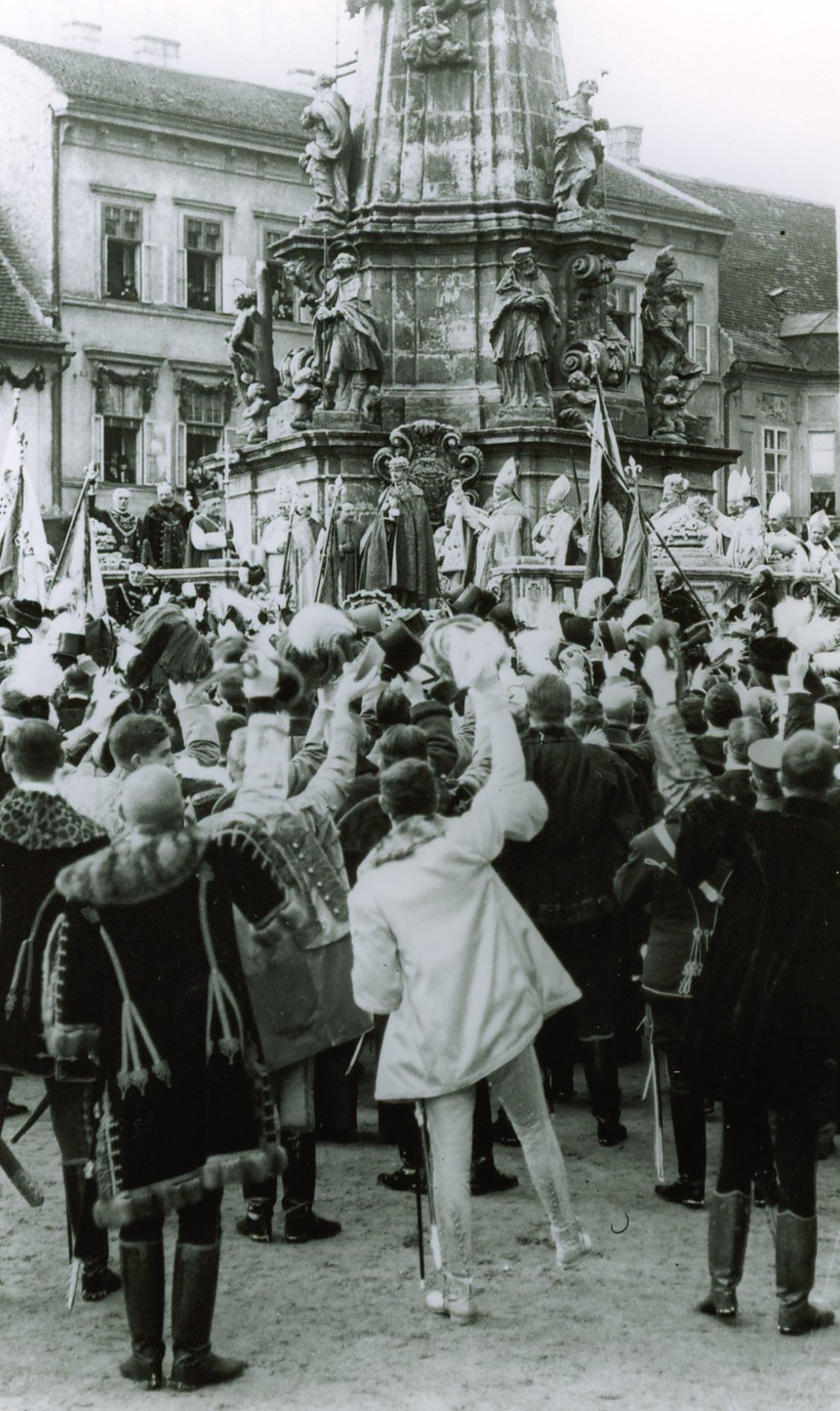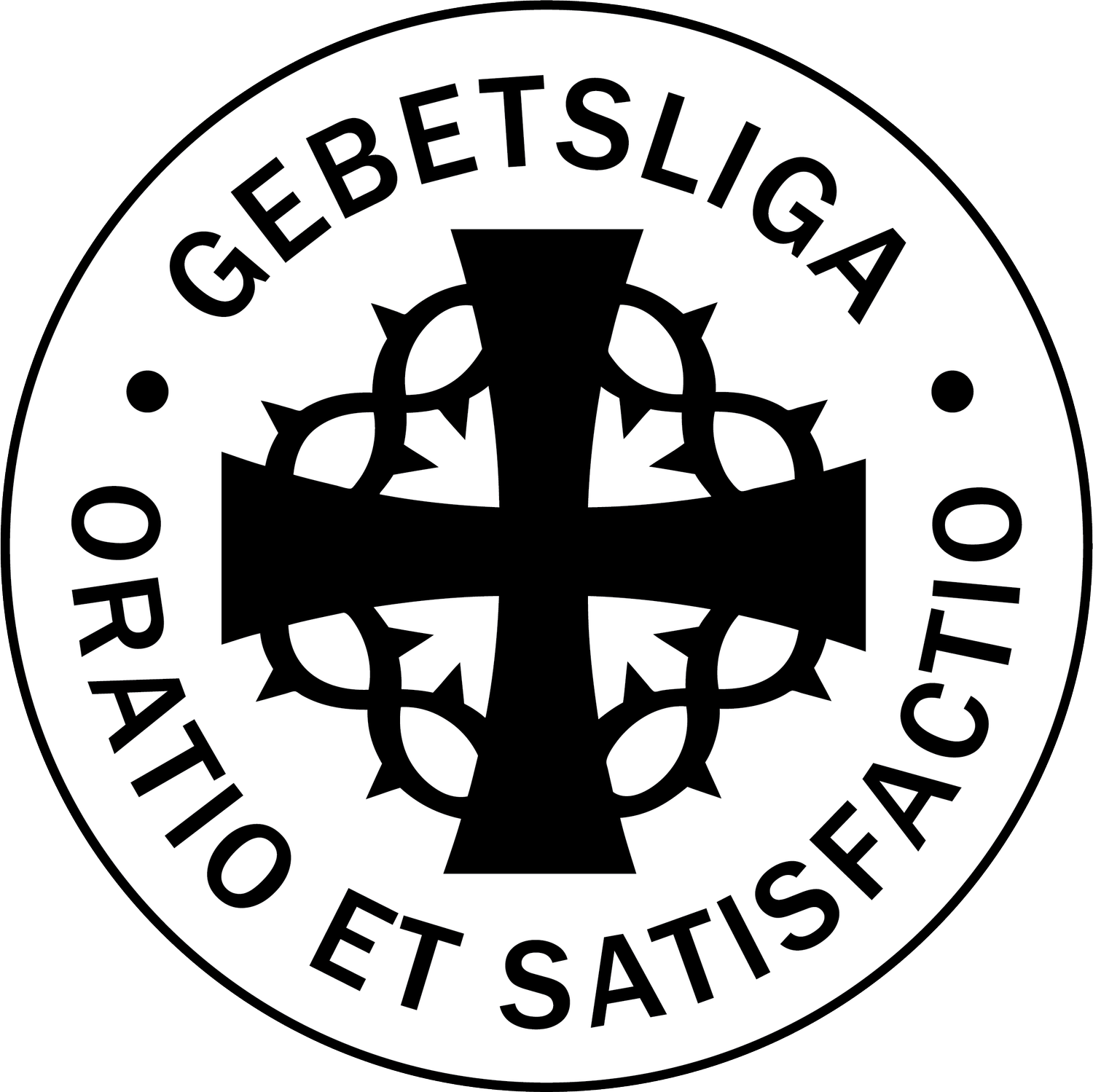
Karl: A Catholic Monarch
The Habsburg monarchy had a long relationship with the Roman Catholic Church. As the political descendant of the Holy Roman Empire, the Habsburg monarchy had dual responsibilities for its subjects' spiritual and temporal welfare.
In this context, the Austro-Hungarian monarch was head of both the State and Church; however, it must be noted that although the Habsburg emperors were Apostolic Majesties mandated to spread the Catholic faith and foster the Church's welfare, they were also tolerant of non-Catholic faiths found in their empire. Jews, Muslims, and Protestants were protected by the crown, and permitted to observe their faiths in peace. Karl was perfectly suited for this role, and is an excellent model of a head-of-state who diligently works for the spiritual and temporal welfare of his people.
In order to reign constitutionally in the Hungarian half of the dual monarchy a coronation was required. Since the First World War was raging and speed was necessary, the coronation in Budapest was pushed forward earlier than usual, but nevertheless it was celebrated with great solemnity. Karl and Zita spiritually prepared for the event, which was a moving experience for both of them, and nourished their souls. They were anointed and crowned as Apostolic Majesties by the Hungarian Cardinal Primate. After receiving Holy Communion, they were given the commission to uphold the Hungarian constitution and the welfare of the Roman Catholic Church.
Karl took both of his mandates seriously. He strove to make the correct ethical and moral decisions, even when overlooking some of his duties might have been easier for him, and perhaps may have even allowed him to maintain his throne. Every decision, act, order and law was made with ethical and moral deliberation, using the criteria of whether what was being proposed fostered both the temporal and spiritual welfare of the people. For him, these two functions could not be separated, as they were mandates given to him by God, through the auspices of the Church-hence a sacred trust.
He upheld this sacred trust in all that he did. At home, Emperor Karl established a Ministry of Social Welfare-the first of its sort in the world. Its mission was to deal with such social issues as youth welfare, war disabled, widows and orphans, social insurance, labor rights and job protection, job placement, unemployment relief, and emigration protection and housing. He commuted death sentences whenever he could, and constantly urged his Hungarian ministers to enact universal suffrage in Hungary (unfortunately, his ministers resisted his instructions and suffrage was not legislated during Karl's reign). Karl ordered rationing to be instituted at the palace, just as it was throughout the rest of Vienna. He organized soup kitchens, used the palace's horses and wagons to deliver coal to the Viennese, fought against usury and corruption, and gave away most of his private wealth by distributing alms beyond his means. He went among his people, suffered with them, and comforted them with his presence and words. His subjects called him "The People's Emperor," a title he cherished more than his noble and royal titles.
On the warfront, Emperor Karl halted strategic bombing of civilian populations and buildings, restricted the use of mustard gas, and was adamantly opposed to submarine warfare and the mining of harbors. He abolished the military punishment of binding wrists to ankles, prohibited duels, and forbade flogging. He decreed an amnesty for anyone sentenced by military or civilian courts on charges of high treason, insults to the Royal Family, disturbance of the public peace, rebellion or agitation. At risk to his own life, he visited the soldiers on the frontlines and in the hospitals, giving all of the moral support he could, and observing the fighting firsthand. As Supreme Commander, Karl would not send his men anywhere that he himself would be afraid to go. His trait of showing up unexpectedly at anytime, anywhere, caused his soldiers to affectionately nicknamed him: "Karl-the-Sudden." His presence inspired courage and valor.
Text by Br. Nathan Cochran, OSB

